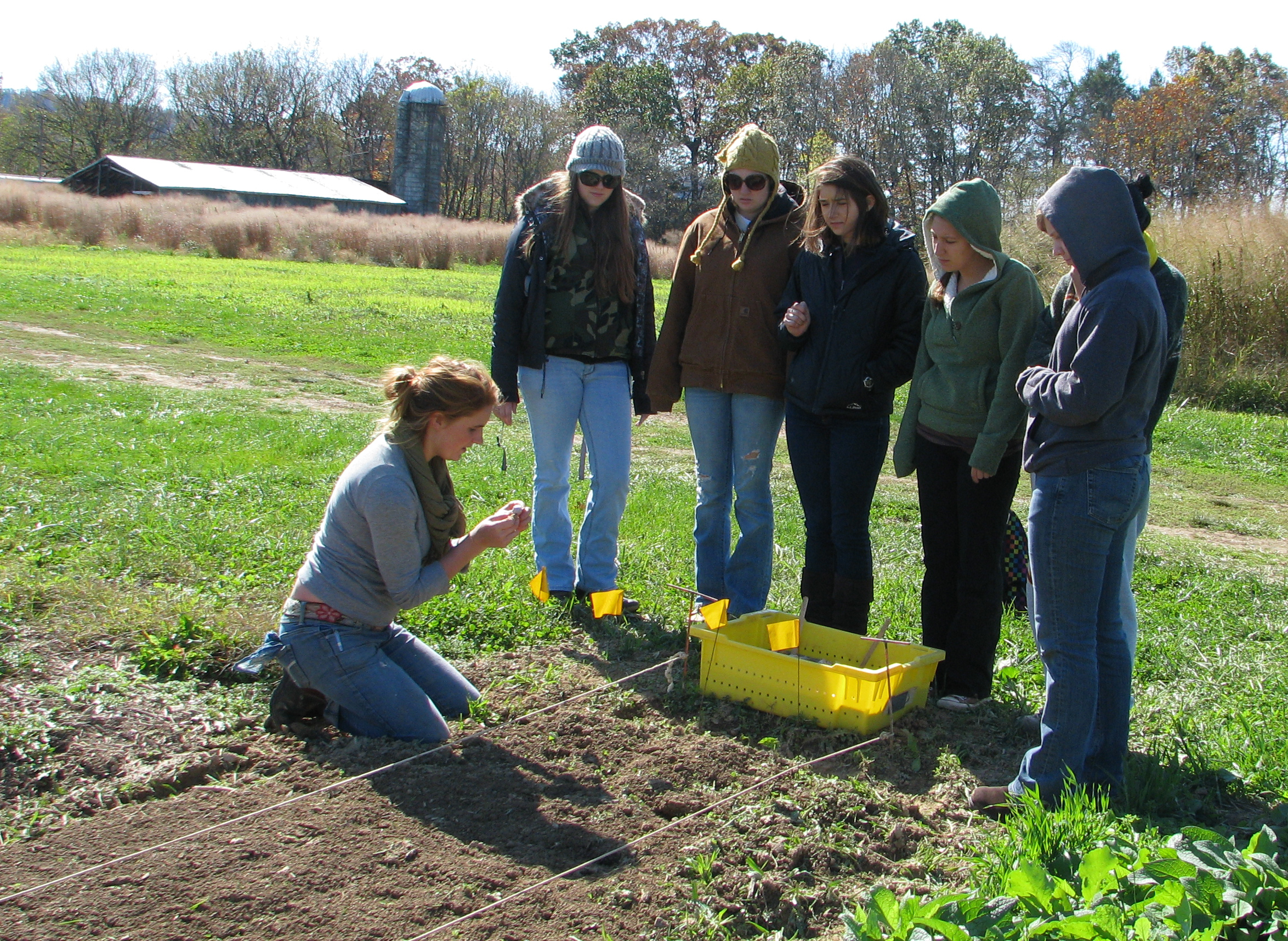Student-run Dining Services garden expects 40,000-pound yield in 2011

Virginia Tech’s Dining Services Garden at Kentland Farm, which provides a wide range of organically grown produce for several of the university’s dining venues, is anticipating a yield of 40,000 pounds for the 2011 harvest year.
The actual yield from 2010 was 23,000 pounds.
Sustainability Coordinator Elena Dulys-Nusbaum said Dining Services expects the increase because of the garden’s success and rapid growth. It began as an herb plot in 2009, and by 2010 had grown to roughly two acres. This year the garden expanded to almost three acres. She said the estimate also includes the numerous research crops at Virginia Tech, many of which are donated to Dining Services.
The garden is located at Kentland Farm, which is part of the College of Agriculture and Life Sciences. It is an exercise in sustainable farming, and everything produced there goes to the dining program. The result is that many of the Dining Services venues on campus serve fruits, vegetables, and herbs that were grown roughly 10 miles away in an environmentally sound manner.
“We grow using natural, petroleum-free methods in order to support the exploration of agriculture that relies less on petroleum inputs and more on naturally occurring or naturally based inputs,” Dulys-Nusbaum said. “By supporting this garden, Virginia Tech is confirming its commitment to innovation and social responsibility demonstrated in the Virginia Tech Climate Action Commitment and Sustainability Plan signed in 2008.”
Since its inception, the garden has grown to house several crops, from asparagus to strawberries to zucchini. Dulys-Nusbaum said broccoli is easily the garden’s most impressive crop, with an expected yield this year of roughly 9,500 pounds.
Those interested in sampling the garden’s produce can visit any Dining Services venue or, more specifically, the Farms and Fields Project in Owens Food Court, where everything is made with either garden fare or other locally grown, organic, or sustainable foods.
In order to get everything from farm to table, the garden relies on the help of volunteers and two student managers: Chelsea Graves of Bluemont, Va., a senior majoring in interdisciplinary studies in the College of Liberal Arts and Human Sciences, and Adam Huff of Ashland, Va., a senior majoring in horticulture in the College of Agriculture and Life Sciences. Farm technician Johanna Cricenti of Floyd, Va., a graduate student studying horticulture in the College of Agriculture and Life Sciences, also provides assistance to the student managers.
Student manager responsibilities include technical planning, on-site management, and daily maintenance of the garden. They also oversee Dining Services staff members who work in the garden during the summer, and the volunteers who help in the fall and spring.
Dulys-Nusbaum said the garden will need even more volunteers this year to keep up with the increased harvest. Most volunteer work is available in the fall, and the entire community is welcome to participate. Volunteers can expect to assist with planting, harvesting, and various maintenance activities.
For Dulys-Nusbaum, the most important aspects of volunteering are the opportunities to be directly involved in locally grown and organically produced foods and sustainable farming and to develop awareness of where and how food is produced.
“We are collaboratively harnessing the knowledge of various researchers, departments, faculty, and community members in order to create a productive learning space for volunteers,” Dulys-Nusbaum said. “Student and community volunteers can get the full farm-to-fork experience. They may visit dining centers and quite literally eat the fruit of their educational pursuits. It is not often that experiential or service learning produces such outputs.”
For more information or to get involved, individuals should visit the garden’s Facebook Page or the Farms and Fields blog. Those interested in group volunteer work should contact Elena Dulys-Nusbaum to schedule special group days and tours.
Written by Jennifer Gibson.







